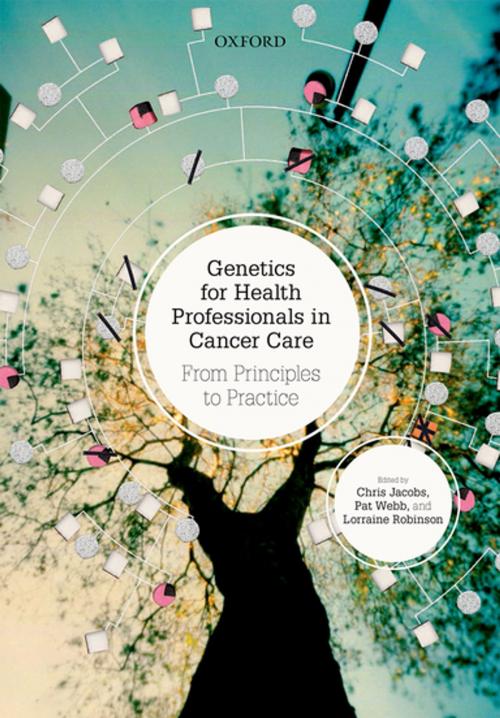Genetics for Health Professionals in Cancer Care
From Principles to Practice
Nonfiction, Health & Well Being, Medical, Medical Science, Genetics, Specialties, Oncology| Author: | ISBN: | 9780191653490 | |
| Publisher: | OUP Oxford | Publication: | August 14, 2014 |
| Imprint: | OUP Oxford | Language: | English |
| Author: | |
| ISBN: | 9780191653490 |
| Publisher: | OUP Oxford |
| Publication: | August 14, 2014 |
| Imprint: | OUP Oxford |
| Language: | English |
The role of genetics is becoming increasingly important in all aspects of healthcare and particularly in the field of cancer care. Genetics for Health Professionals in Cancer Care: From Principles to Practice equips health professionals with the knowledge and skills required for all aspects of managing cancer family history. This includes taking an accurate cancer family history and drawing a family tree; understanding cancer biology, basic cancer genetics and the genes involved in hereditary breast, ovarian, prostate, colorectal, gastric and related gynaecological cancers and rare cancer predisposing syndromes; assessing cancer risk and communicating risk information; early detection and risk reducing measures available for those at increased risk and managing individuals with hereditary cancer. Drawing on experiences of health professionals, Genetics for Health Professionals in Cancer Care discusses the challenges raised and provides practical advice and insight into what happens when a patient is referred for genetic counselling and genetic testing, including the psychological, social and ethical issues faced by individuals and families with and at risk of hereditary cancer. The book also provides practical guidance on setting up a cancer family history clinic in primary and secondary care. Genetics for Health Professionals in Cancer Care is essential reading for healthcare professionals working with cancer patients and their families, and is an ideal reference text for non-specialists working in cancer genetics.
The role of genetics is becoming increasingly important in all aspects of healthcare and particularly in the field of cancer care. Genetics for Health Professionals in Cancer Care: From Principles to Practice equips health professionals with the knowledge and skills required for all aspects of managing cancer family history. This includes taking an accurate cancer family history and drawing a family tree; understanding cancer biology, basic cancer genetics and the genes involved in hereditary breast, ovarian, prostate, colorectal, gastric and related gynaecological cancers and rare cancer predisposing syndromes; assessing cancer risk and communicating risk information; early detection and risk reducing measures available for those at increased risk and managing individuals with hereditary cancer. Drawing on experiences of health professionals, Genetics for Health Professionals in Cancer Care discusses the challenges raised and provides practical advice and insight into what happens when a patient is referred for genetic counselling and genetic testing, including the psychological, social and ethical issues faced by individuals and families with and at risk of hereditary cancer. The book also provides practical guidance on setting up a cancer family history clinic in primary and secondary care. Genetics for Health Professionals in Cancer Care is essential reading for healthcare professionals working with cancer patients and their families, and is an ideal reference text for non-specialists working in cancer genetics.















